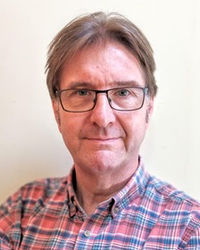
A native of Co. Antrim, Laird went on to study at the Universities of Dundee, Edinburgh, Toronto and Staffordshire. His first ‘proper jobs’ were in the public sector, starting off as a Civil Servant in Whitehall, followed by two decades with Stoke-on-Trent City Council. Here, he worked to help disadvantaged and overlooked communities to engage with the council and other key agencies – in one case, saving a mining village from almost certain demolition. As chief advisor to Stoke’s Elected Mayor, Laird delivered a Green Papers initiative, enabling people from all backgrounds to make tangible contributions to policy development on housing, sustainability and community safety.
Laird next took on equality and social inclusion roles in regional government, liaising with public, private and voluntary sector leaders in the West Midlands and North West to forge binding accords on fair working practices, access to employment, public health and social wellbeing. He then worked for a time as CEO of a large multicultural organisation on Merseyside, helping its trustees, workers and beneficiaries to embrace a more open and inclusive culture. As a co-director of the National Coalition for Independent Action, a body set up to defend voluntary services from cuts and marketisation, Laird authored and presented research papers on outsourcing and democracy in the planning process. He also edited the LocalismWatch blogspot on the openDemocracy platform, helping grassroots communities to make sense of the government’s localism agenda - and challenge it.
Laird’s current workload is more varied than ever. He designs and leads town planning modules and supervises research on wide-ranging community-based issues at the distance-based University College of Estate Management. He's also a qualified ESOL teacher, with a special focus on students - refugees and asylum seekers - with interrupted learning experiences: in most cases. In that context, Laird actively contributes to the work of the international LESLLA community that supports best practice in supporting such individuals. Laird is the Vice-Chair of Faiths 4 Change, a charity that co-creates practical, locally-based projects to mitigate climate change in meaningful ways and create just, flourishing community environments for all.